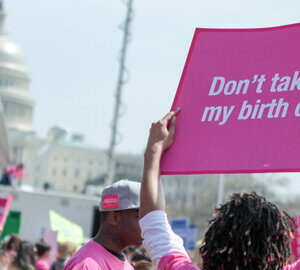Written by Mikaela Gantz
The debate on one of America’s most divisive issues is still making the frontlines almost a year after Roe v. Wade was overturned. This time, however, the debate is over abortion pills. Mifespristone was approved in 2000 by the FDA as the first step in a two-drug process to abort early pregnancies.
Last January, this drug was made widely available to the public, as the FDA changed its policies to allow retail pharmacies to give it out. This change in the law could make it easier for millions of women to obtain abortions. There is a lot of backlash over abortion pills, as it is the most common form of abortion in the United States currently. It makes it easy, some lawmakers would argue too easy, to abort a fetus.
In California, Governor Newsom is in a heated debate with Walgreens, threatening to not renew their contract with the state, over a statement Walgreens put out on abortion pills. Walgreens amended their statement to clarify that they will continue to provide mifepristone in states where abortion is still legal, which includes California. Michigan recently repealed a 1931 abortion law that made abortion pills illegal. This allows millions of women the freedom to choose what is best for them with a wider range of options. In Texas, a judge is debating whether mifepristone should be legal at all in the state. A lawsuit was filed by an anti-abortion group that claims it’s unsafe for pregnant people to take abortion pills due to associated health risks and deaths. The FDA says that up until the 10 week mark it is perfectly safe to have an abortion at home with the two drug process.
This debate over abortion pills and access points a glowing arrow to the larger debate over reproductive freedom. Should people have the right to bodily autonomy? Should the state, or the federal government, or some other foreign entity get to control whether someone does or does not have an abortion? Clearly, there is no answer America can agree on.




